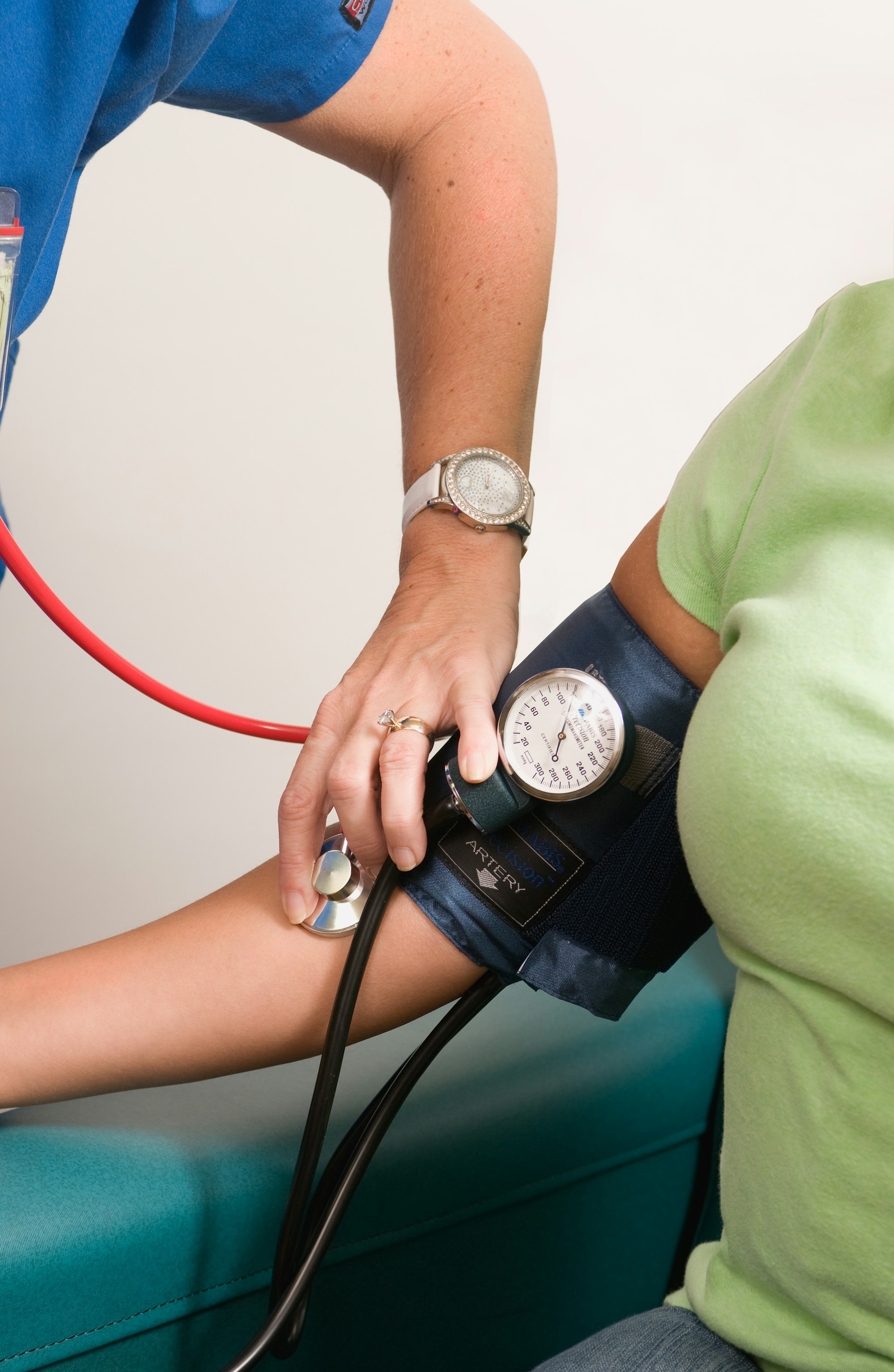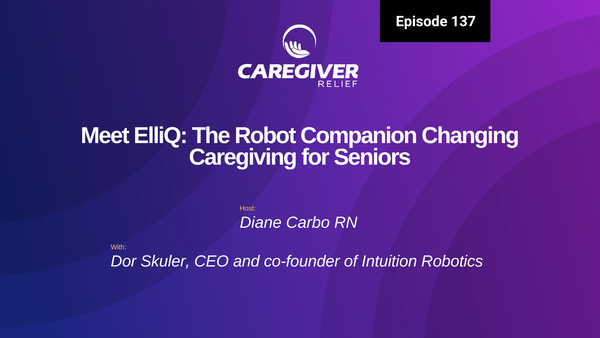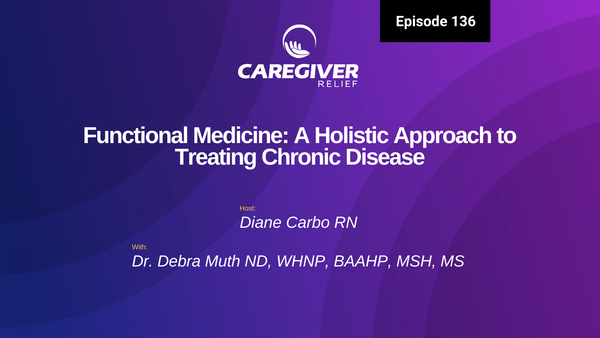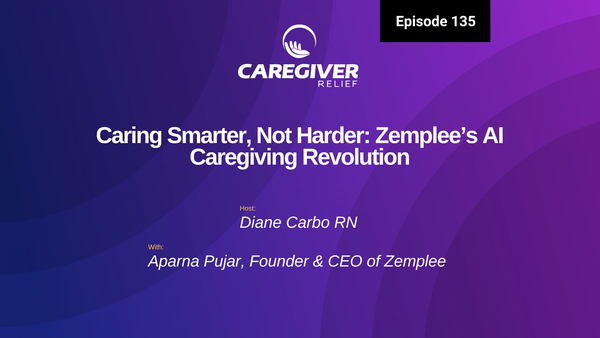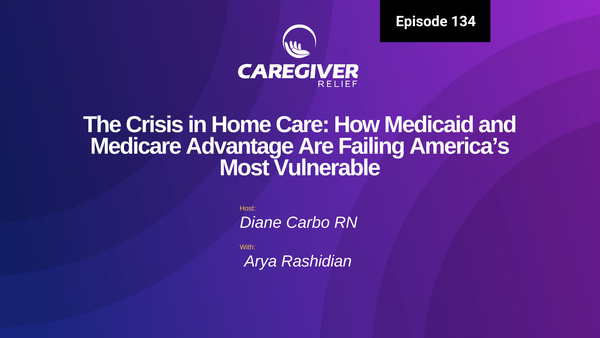Understanding Stroke: What You Need to Know to Protect Your Brain with Rosa Hart BSN RN SCRN - Episode 115
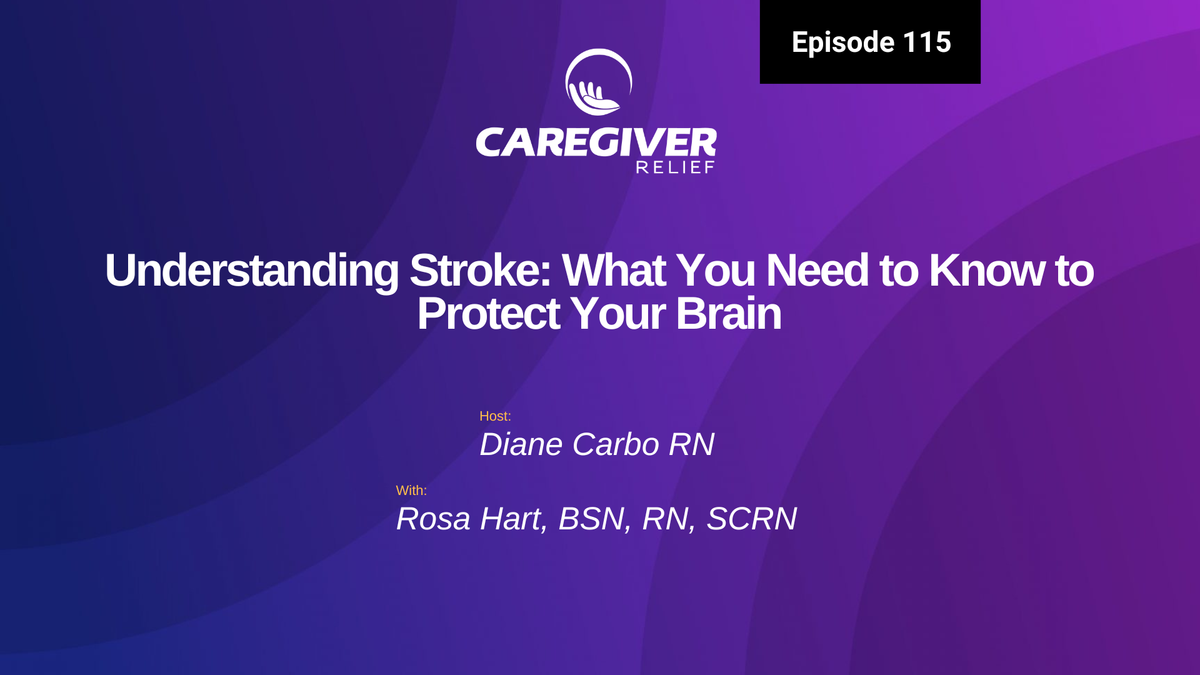
What if you could prevent a life-altering medical emergency? Statistics show that an astonishing 80% of strokes are preventable, yet it remains a leading cause of disability and death. The key to protecting yourself and your loved ones lies in understanding the risks, recognizing the signs, and acting without hesitation.
In this critical episode of the Caregiver Relief Podcast, host Diane Carbo is joined by Rosa Hart, BSN, RN, a Stroke Certified nurse, speaker, and podcaster. Rosa shares her invaluable expertise from years of working with stroke survivors, breaking down everything you need to know—from the two main types of stroke to the lifestyle changes that can save your brain.
Don't wait for a crisis. Press play to learn how to be prepared and proactive about brain health.
What You'll Learn in This Episode 📝
Here’s a look at the essential topics Rosa and Diane cover to empower you with life-saving knowledge:
- What Exactly IS a Stroke? 🩸
- Learn the difference between an Ischemic stroke (caused by a clot or blockage, accounting for about 90% of strokes) and a Hemorrhagic stroke (a bleed in the brain).
- Discover the single most important thing you can do to prevent either type: managing your blood pressure and keeping it under 130/80.
- Know Your Risk Factors (The Controllable and the Uncontrollable) 📋
- Modifiable Risks: You have the power to change these! This includes high blood pressure, cholesterol, obesity, smoking, nicotine use (including vaping), alcohol consumption, and activity level.
- Diabetes Alert: Did you know that having diabetes doubles your risk of having a stroke, regardless of other factors?.
- Non-Modifiable Risks: These are things you can't change, like genetics or certain anatomical structures.
- BE FAST to Save a Brain! 🚑 A stroke's warning signs are sudden. Knowing the BE FAST acronym can help you spot one in yourself or others and act immediately.
- B - Balance: A sudden loss of balance or coordination.
- E - Eyes: Sudden change in vision, like blurred, double, or loss of peripheral vision.
- F - Face: Facial drooping or numbness on one side.
- A - Arms: Weakness or numbness in one arm.
- S - Speech: Slurred speech, difficulty speaking, or saying words that don't make sense (a "word salad").
- T - Time: Time to call 911 immediately! This can also stand for a Terrible Headache, especially a "thunderclap headache" that comes on instantly.
- "Mini-Strokes" are a MAJOR Warning ⚠️
- A Transient Ischemic Attack (TIA), often called a "mini-stroke," is when stroke-like symptoms appear and then resolve.
- This is NOT something to ignore! A TIA is a massive warning sign that a major stroke could happen soon, often within the next month. It’s your second chance to find the cause and prevent a larger event.
- Prevention is Your Best Defense 💪
- Diet: The Mediterranean diet is scientifically proven to be neuroprotective. Focus on healthy fats (like fish), fresh fruits and vegetables, and limit sodium and sugar.
- Lifestyle: Quit smoking and vaping. For women, be aware that hormonal birth control containing estrogen can increase stroke risk, especially when combined with nicotine use.
- Movement: You don't have to run a marathon. Simple changes like parking further away or taking 10-minute walks throughout the day make a huge difference.
- A Message for Caregivers 🙏
- Caring for a stroke survivor is incredibly stressful, which increases your own risk for a stroke.
- Do not skip your own doctor's appointments. Prioritize your diet, sleep, and mental health.
- Seek out resources like respite care and support groups. You cannot pour from an empty cup.
Hope After a Stroke ❤️🩹
One of the most powerful parts of the conversation is when Rosa shares an inspiring story about a stroke survivor and her husband. The survivor was terrified to sleep, fearing she wouldn't wake up or would have another stroke. By listening to a podcast episode on emotional coping together, her husband learned how to validate her fears and support her, strengthening their relationship and helping her find peace. It’s a beautiful reminder that recovery is both physical and emotional, and connection is key.
Ready to learn more? Listen to the full episode for an in-depth discussion that could protect you and the ones you love.

More from Our Guest, Rosa Hart
Find links to all of Rosa's work on her website, nurserosaspeaks.com.
Listen to her podcasts:
- "Stronger After Stroke" for Norton Neuroscience Institute
- "Nurse Rosa's INsights" on Health Podcast Network
- "Aging Like A Pro" for the Evelyn F. McKnight Brain Institute, University of Miami Miller School of Medicine
Her work and advocacy also include:
- Fellow, Leadership & Advocacy Academy, Kentucky Nurses Association
- Chair, Ethics & Human Rights Committee, Kentucky Nurses Association
For additional resources and support, visit the American Heart Association at stroke.org.
Caring for a loved one can be overwhelming — but you're not alone. If you have questions, big or small, our expert team is here to help.
👉 Click here to Ask the Expert
Our Resource section can help you find the information and tools that you need. We have courses, videos, checklists, guidebooks, cheat sheets, how-to guides and more.
You can get started by clicking on the link below. We know that taking care of a loved one is hard work, but with our help you can get the support that you need.
Click here to go to Resource Section now!
You might also like this article:
